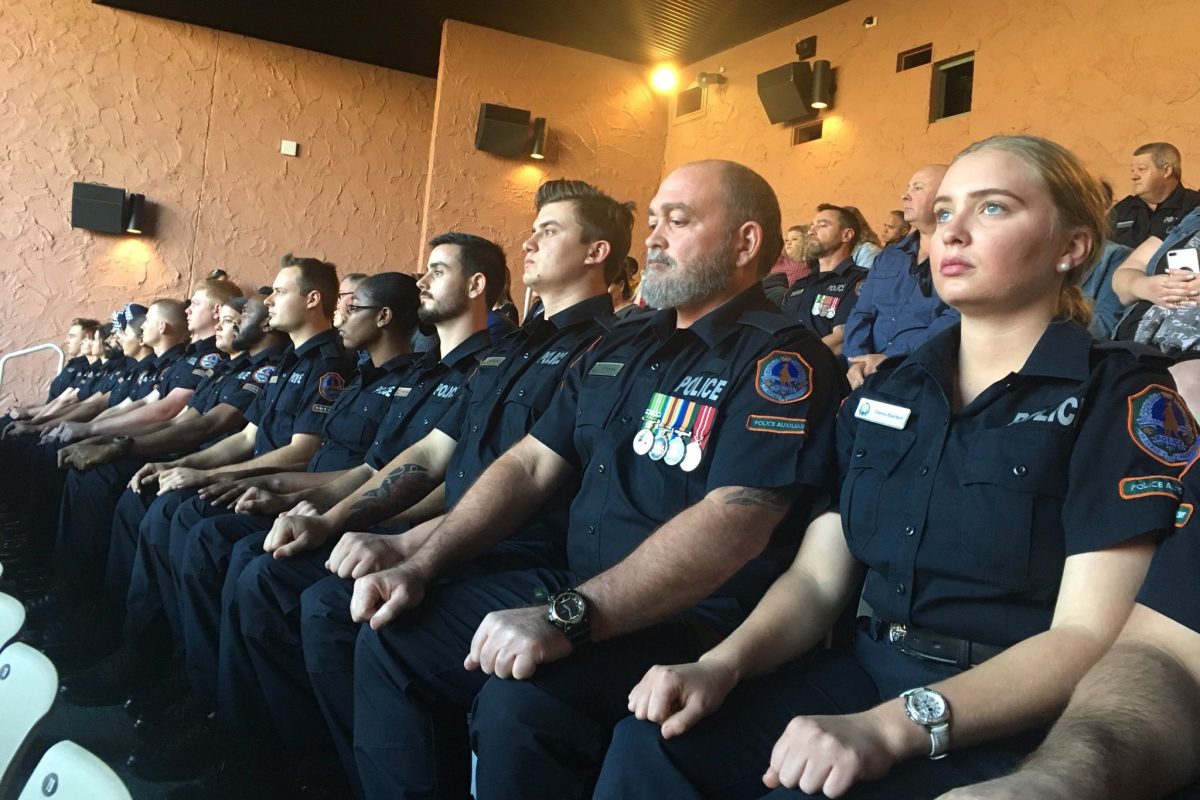An Emergency Situation has been declared in Alice Springs, following two violent altercations yesterday, vindicating concerns about understaffing of police and Police Auxiliary Liquor Inspectors (PALIs).
Yesterday afternoon, a licensed premises was the site of a dispute, wherein a group of people damaged the building. Police attended the scene and made a number of arrests. Later that day, at around 7pm, police were called to an address at Sadadeen, where they encountered about 150 people engaging in violent conduct. Police allege that a car was set alight, as well as a mattress in a nearby house, and five people were arrested for carrying weapons and starting the two fires.
The Emergency Situation declaration allows the NT government to institute a 6am to 6pm curfew for people under 18 years of age, which will be enforced by police. The curfew will last for a 14-day period, encompassing the Easter public holidays and school holidays.
Minister for Police Brent Potter said that further police forces are being sent to address the issues in Alice Springs.
“We are responding to unacceptable, abhorrent behaviour across Alice Springs. The Territory Safety Division has a 23 strong team in Alice Springs right now conducting operations to apprehend all involved in the unrest. These officers will be supported by another 58 police on their way to Alice Springs right now.
“This is not just a policing issue, we must collaborate with community leaders to keep Alice Springs safe,” he said.
Last year, the government promised more than $14m to address police and PALI understaffing in Alice Springs, funding an additional 30 police officers, 21 PALIs, and 10 security guards. However, Nathan Finn, President, Northern Territory Police Association (NTPA), said that the problem still persists.
“Alice Springs remains critically understaffed and under resourced to deal with the unsustainable levels of harm, violence and crime. Despite an additional 14 recruits starting in the last fortnight, Alice Springs remains 22 officers short of the 30 extra police funded by Prime Minister Albanese in January last year,” he said.
PALI shortage
The Emergency Situation announcement follows growing concerns about policing and PALI shortages in Alice Springs.
Opposition Leader Lia Finocchiaro said that takeaway liquor outlets have seen an increase in anti-social and violent behaviour over the last two weeks.
“Several bottle shop owners have spoken out about the chaos that the government has caused by not having enough PALIs, with the stores without PALIs being swamped and dealing with anti-social behaviour, theft and staff assaults causing them to have to close their doors to ensure staff safety,” she said.
The majority of Alice Springs PALIs are currently undertaking further training in Darwin to become Constables, leaving the town with only two operational PALIs. Other PALI or Point of Sale Inspector (POSI) shifts are being filled by Police Constables, usually on overtime.
The initial announcement of this additional training was welcomed by industry bodies, with Michael Waters, CEO, Retail Drinks Australia, hoping that it would lead to greater PALI recruitment.
“Retail Drinks, and its members, have long supported the use of PALIs as an effective, targeted measure to minimise anti-social behaviour at bottle shops in the Northern Territory. Whilst we have also supported offering additional training to PALIs to become Constables, we have emphasised that provision of this training should not hinder the PALIs’ overall presence.
“We have been deeply concerned about the lack of coverage amongst bottle shops in recent weeks in Alice Springs due to the removal of PALIs to undertake training and have expressed our concerns directly to the NT Government,” he said.
In response to the critical shortage of PALIs, roaming police units are replacing much of the usual PALI presence. Despite an additional 20 police officers being surged from Darwin to Alice Springs prior to the Emergency Situation declaration, the police presence in Alice Springs is stretched thin.
NTPA President Finn is concerned about the effects of this understaffing.
“The Government should have had adequate Liquor Licensing Inspectors recruited before moving PALIs to Darwin to undertake the transition to Constable course.
“The shortfall means General Duties police officers are being pulled from the frontline and stuck on bottle shops. If you pull officers off the frontline to fill other roles it impacts the ability for police to respond to the community’s needs, including domestic violence and alcohol-related assaults.
“The NTPA’s position is clear; police should not be undertaking the arduous task of checking licences at bottle shops, this should be undertaken by appropriate personnel – Liquor Licensing Inspectors,” he said.
Waters said that customers have been preferencing stores without a PALI presence, putting these stores at further risk.
“As a result of the reduced PALI presence, there has been a noticeable shift in customer behaviour where the bottle shops without PALIs present have received a considerable increase in foot traffic compared to the stores where PALIs have remained.
“This has created further issues for businesses operating under a grocery store licence where their liquor sales are capped at 25 per cent and, unfortunately has resulted in some businesses having no other option but to close their liquor store and turn away customers for fear of going over this strictly enforced, arbitrary cap.
“Further issues with safety and security have also warranted stores to close with a notable increase in theft and antisocial behaviour at those stores without PALIs,” he said.
Amid efforts by the NT Government to increase police presence, Waters reaffirmed the importance of PALIs.
“While we welcomed the NT Government’s response to this issue by increasing its police presence in the region, we do not believe that this has solved the problems that removing the PALIs has created,” he said.
“We urge the NT Government to immediately reinstate PALIs at all stores in Alice Springs, Tennant Creek and Katherine and ensure future additional training is appropriately managed such that there is no gap in PALI coverage.”

